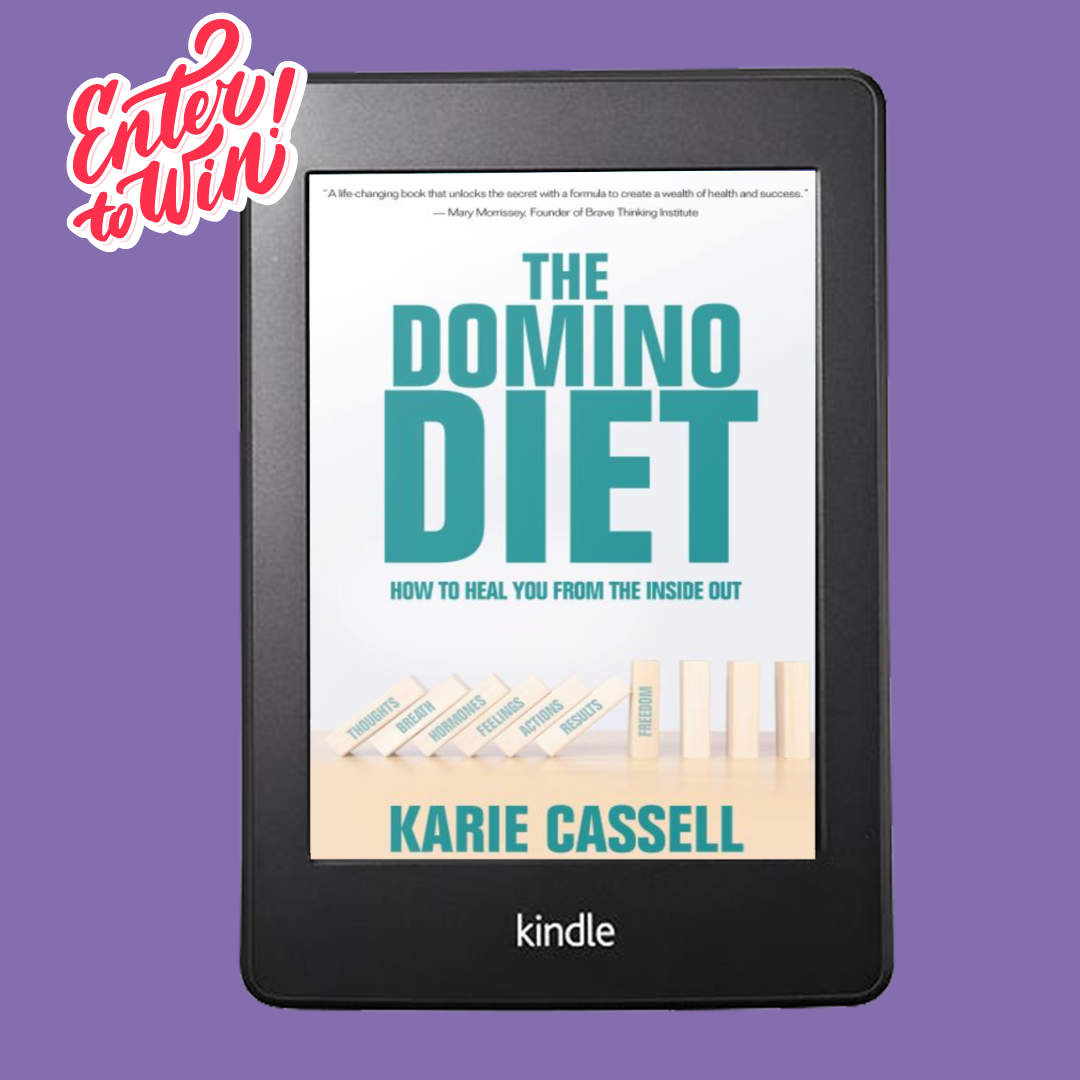Sports Nutrition for Beginners
during activity fuel performance and weight goal hydration morning workout pre workout recovery nutrition sports nutrition weight goal Oct 02, 2024
Sports Nutrition for Beginner Athletes: Fueling for Performance, Recovery & Weight Goals
Whether you're just beginning your fitness journey or training regularly, understanding sports nutrition is key to maximizing performance and recovery. From quick 30-minute workouts to endurance sessions lasting up to two hours, your body's fuel needs will vary. Proper nutrition can enhance everything from your endurance to weight goals. Let’s break down pre-, during-, and post-nutrition strategies to help you achieve your fitness targets.
Pre-Workout Nutrition: Fueling for Success
-
Workouts 30–60 Minutes
For shorter workouts, your body might only need a small energy boost, especially if you've eaten within the last 2-3 hours. However, even a quick snack can make a difference in your stamina and calorie burn. Studies show that fueling your body with easily digestible carbohydrates before a workout can lead to better performance and fat burning compared to working out on an empty stomach.Examples:
- Banana or apple slices with a tablespoon of nut butter
- A small slice of toast with honey
- 1/2 cup of plain Greek yogurt with a few berries
-
Workouts 60–90 Minutes
For mid-length workouts, aim to eat a light meal or snack 1–2 hours before. This allows the food to be digested and ready to fuel your muscles rather than sitting in your stomach. If you're working out early in the morning with less than 30 minutes to spare, try a small snack like half a banana or a handful of dried fruit to give your muscles immediate energy.Examples:
- Oatmeal with a spoonful of peanut butter
- Small smoothie with fruit, spinach, and almond milk
- Rice cake with avocado and an egg
-
Workouts 90–120 Minutes
Longer endurance workouts require more planning. A balanced meal with carbs, protein, and a bit of fat 2–3 hours before ensures that your muscles are fueled. The night before, focus on a meal rich in complex carbohydrates like whole grains and lean protein to top off glycogen stores.Examples:
- Grilled chicken with quinoa and veggies
- Brown rice with fish and steamed broccoli
- Sweet potato with turkey and spinach
During Your Workout: Staying Fueled & Hydrated
-
For sessions under 60 minutes, hydration is key. Drink water consistently throughout your workout. If your workout exceeds 60 minutes or involves intense activity, consider a drink with electrolytes or light fuel to maintain energy levels.
Examples:
- Water or a diluted sports drink
- Small sips of an electrolyte drink if sweating heavily
- A few bites of a sports gel or an energy bar for longer sessions
Post-Workout Nutrition: Refueling and Repairing
After your workout, your body is primed to replenish glycogen stores and repair muscles. This is where Karie's 15/15/15/15 Rule comes in: for every hour of working out, aim to consume 15 oz of fluid, 15 g of carbohydrates, and 15 g of protein within 15–30 minutes post-workout.
This combination helps with muscle recovery, reduces muscle soreness, and prepares you for the next workout.
Examples:
- A protein shake with a banana
- Turkey sandwich on whole-grain bread with spinach plus 15 oz Milk/Milk Substitute
- Cottage cheese with sliced peaches plus 15 oz Coconut Water (high in potassium).
Metabolic Reset and the Role of Sports Nutrition
Your body relies on metabolic processes to convert the food you eat into energy. Regular exercise paired with the right fuel can enhance your metabolism, helping with endurance and weight management. Adequate nutrition ensures your body has enough glycogen to draw from, avoiding the "empty tank" feeling and increasing your ability to burn calories efficiently.
Research shows that even small amounts of pre-workout fuel increase calorie burning more effectively than fasting before exercise. This is particularly important for novice athletes aiming for sustainable progress.
Hydration and Electrolytes
Hydration is as crucial as food when it comes to performance. Drinking enough water supports circulation, temperature regulation, and muscle function. Low levels of electrolytes (especially sodium, potassium, and magnesium) can result in muscle cramps and fatigue. If you're working out intensely or for longer durations, consider an electrolyte drink to replenish what you lose through sweat.
How to Know If You’re Low in Electrolytes:
- Muscle cramping
- Fatigue or weakness
- Dizziness or headaches
- Nausea during or after workouts
Nutrition for Weight Gain or Weight Release
Depending on your goals, sports nutrition can help you either gain lean muscle mass or lose weight:
- For Weight Gain: Focus on eating more calorie-dense foods like nuts, avocado, and lean protein, ensuring you meet your calorie needs while exercising regularly.
- For Weight Release: Prioritize endurance training while keeping a balanced diet. Endurance activities boost metabolism, allowing you to burn more calories even at rest. Focusing on maintaining muscle mass through adequate protein intake is also essential for weight loss.
Chart: Pre-, During-, and Post-Workout Nutrition Ideas (Using the 15/15/15/15 Rule)
| Time | Example Foods/Drinks |
|---|---|
| Pre-Workout | 30 mins: 1/2 banana, 1 rice cake, or a small piece of fruit (15g carbs) |
| 1–2 hours: Oatmeal with nut butter, small smoothie (15g protein, 30g carbs) | |
| 2–3 hours: Balanced meal with lean protein, whole grains, veggies (30g protein, 45g carbs) | |
| During Workout | <60 mins: Water |
| >60 mins: Electrolyte drink or diluted juice (15g carbs) | |
| Post-Workout | 15 oz water, 15g carbs, 15g protein within 15–30 minutes |
| Example: Protein shake + fruit, Greek yogurt + berries, turkey wrap |
*Note that Coconut water can be high in potassium without being high in sugars and calories
Talk to Karie about how many grams of carbohydrates including sugar levels are right for you.
Workouts in Your 40s and Beyond: Vitality and Vanity
As you age, your nutritional needs change, especially with hormonal shifts during perimenopause and menopause. A diet rich in lean proteins, healthy fats, and complex carbs can help balance hormones, support muscle recovery, and keep energy levels up.
Instead of focusing solely on restriction, prioritize nutrient-dense foods and a flexible exercise routine to adapt to life’s changes. In your 40s, it's more about how you feel, maintaining vitality, and finding joy in movement, rather than chasing an unrealistic diet plan.
Why Connecting with a Dietitian is Key
Whether you're a novice or seasoned athlete, personalized nutrition is critical. A registered dietitian can help you design a plan tailored to your performance goals, hormone balance, and overall health needs. They can guide you in selecting the right fuel, fluids, and supplements, ensuring you perform your best while preventing injury and burnout.
For more nourishing blogs and recipes, connect with Karie! And for a FREE downloadable handouts on Sports Nutrition Pre, During and Post Workout Nutrition Click here Sports Nutrition Guide


Karie Cassell RD, LMC
Bestselling Author, Dietitian, Nutrition Coach
[email protected]
www.kariecassell.com
Ph. 780-814-2983
References:
- Thomas, D. T., Erdman, K. A., & Burke, L. M. (2016). Position of the Academy of Nutrition and Dietetics, Dietitians of Canada, and the American College of Sports Medicine: Nutrition and Athletic Performance. Journal of the Academy of Nutrition and Dietetics, 116(3), 501-528.
- Jeukendrup, A. E. (2017). Periodized nutrition for athletes. Sports Medicine, 47(1), 51-63.
- Slater, G., & Phillips, S. M. (2011). Nutrition guidelines for strength sports: Sprinting, weightlifting, throwing events, and bodybuilding. Journal of Sports Sciences, 29(sup1), S67-S77.
Customize Your Nutrition Tips & A Chance to Win my Book!
Check the boxes that apply to your request and you'll be entered into monthly Book Giveaway!
Don't worry, your information will not be shared.
We hate SPAM. We will never sell your information, for any reason.
Categories
All Categories 100-300 calorie snacks active active after meals adult snacks adutls alcohol alcohol sugars andropause anti inflammatory antioxidant anxiety baking healthy balanced nutrition balanced sugars beauty benefits bento box beverages beyond diets biotin blood sugar management blood sugars burnouot cacao caffeine caffeinne calcium calories cancer carbohydrates causes and treatments chia chocolate cholesterol christmas cleanse cold collagen compare calories complete protein cooking meals cortisol coumadin cramps craving connection dairy free dehydration desserts detox diabetes diet dietician dietitian diets digest don't like cooking during activity easy and tasty easy meal ideas eating for one eating out electrolytes end food war enzymes excercise fat fiber fight flight flexitarian flu fruits and vegetables aka veggies frustration fuel fuel performance and weight goal general healthy glucose load gluten free glycemic index goals growth habits hair harvest salads headaches healing health coach health professional health wellness healthy healthy chocolate healthy dishes healthy drink healthy holiday meal ideas healthy holidays healthy ice cream substitute healthy lunch healthy prepared meals healthy size healthy snacks healthy vegetables dishes heart heart health heart heatlh herbs hormones hot flash hot flashes how much protein hydration hypoglycemia immune boost immune health inflamation inflammation insomnia intervals iron iron absorption kid snacks kids kids in sports kids smoothie lab values label reading lean mass leg cramps less than 500 life coach lifestyle long-term low calorie low calorie buffet low calorie chritmas low fat low gi low sodium low sugar lower calorie turkey dinner lower sugar lunch macronutrients magnesium magnesium foods magnesium supplement maintain make-ahead healthy meal compare meal plan meal planning meals men's health menopause menopuase mental health menu metabolism micronutrients milk milk substitutes mind body spirit minerals mocktails monk fruit more energy morning workout movement muscle aches muscle cramps muscles nails new year's resolutions nightshades nut free nutrition reset nutritionist nutritious meal pcos picky eater plant-based polycystic ovarian portion potassium pre workout prediabetes prepare ahead produce prostate protein raw fruit raw vegetables recipe recipes recovery nutrition reset rest digest create restless legs sabotage saw palmentto serotonin shape skin sleep sleep snacks smoothie smoothie recipe snack meals sodium sports sports drink sports nutrition step converter stevia storing stress sugar sugar substitute sugars summer sunshine supersize supplements tension thanksgiving timing of meals tired too much protein trends turmeric ultra-processed under 500 calories vacation health vegan healthy vegan holiday vegan recipes vegetables vitamin vitamin d vitamin k vitamins warfarin weight weight gain weight goal weight loss younger vs older zincStay connected with Nourishing News & updates!

Click the Button and customize your Nutrition Tips and You will be entered for my monthly Book Giveaway!
For Nourish to Flourish healthy tips and recipes, contact Karie!

Bestselling Author
Phone: 780-814-2983
[email protected]
www.kariecassell.com
Click here to discover THE DOMINO DIET
Recent Posts


